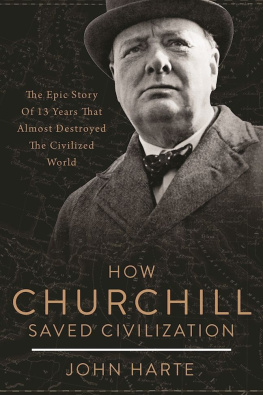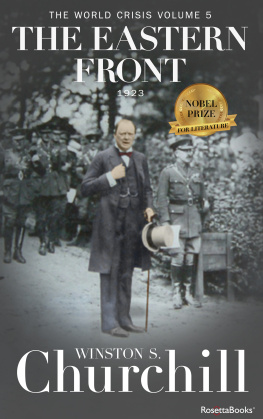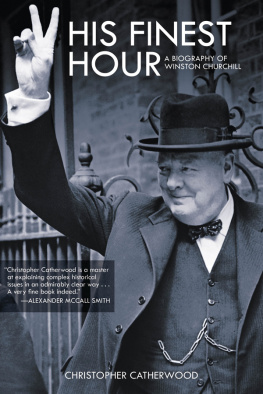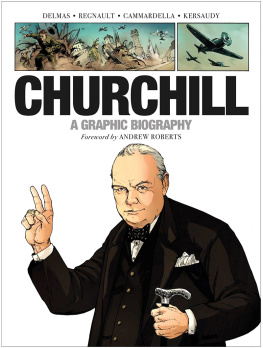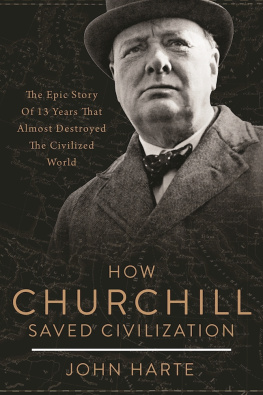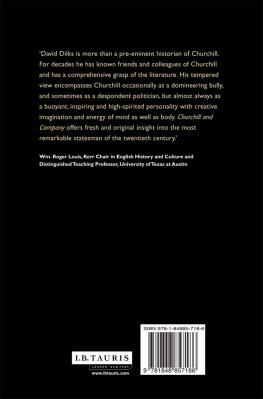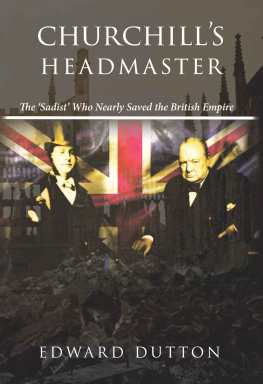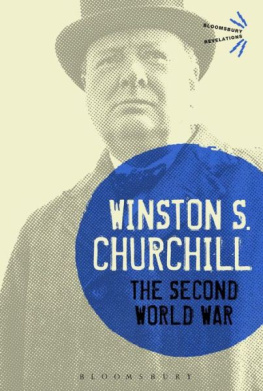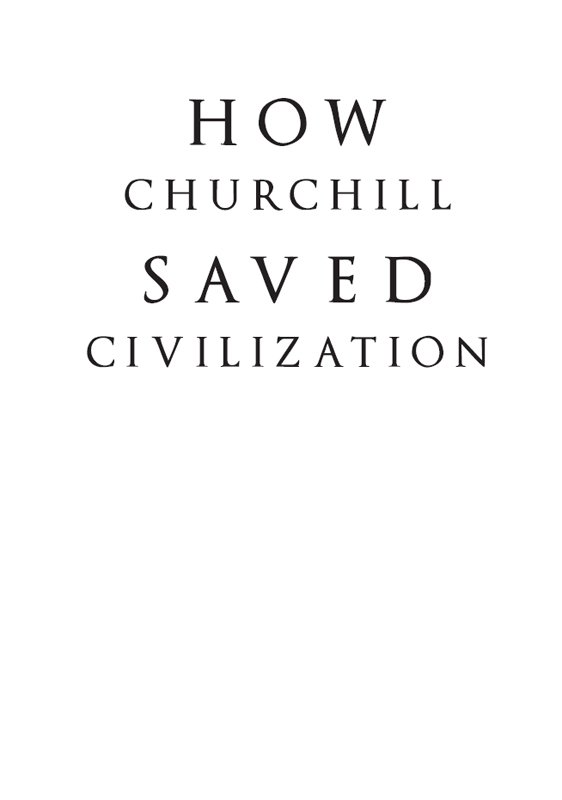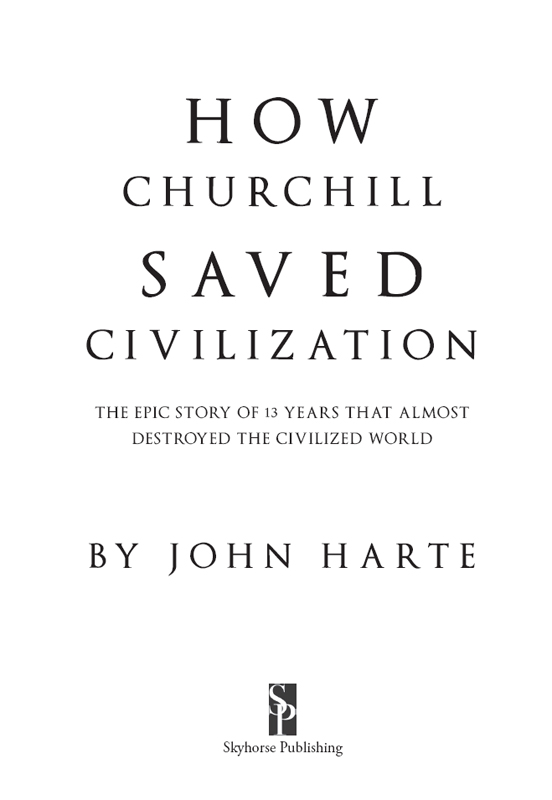Copyright 2016 by John Harte
All rights reserved. No part of this book may be reproduced in any manner without the express written consent of the publisher, except in the case of brief excerpts in critical reviews or articles. All inquiries should be addressed to Skyhorse Publishing, 307 West 36th Street, 11th Floor, New York, NY 10018.
Skyhorse Publishing books may be purchased in bulk at special discounts for sales promotion, corporate gifts, fund-raising, or educational purposes. Special editions can also be created to specifications. For details, contact the Special Sales Department, Skyhorse Publishing, 307 West 36th Street, 11th Floor, New York, NY 10018 or .
Skyhorse and Skyhorse Publishing are registered trademarks of Skyhorse Publishing, Inc., a Delaware corporation.
Visit our website at www.skyhorsepublishing.com.
10 9 8 7 6 5 4 3 2 1
Library of Congress Cataloging-in-Publication Data is available on file.
Cover design by Rain Saukas
Cover photo: AP Images
Print ISBN: 978-1-5107-1237-9
Ebook ISBN: 978-1-5107-1241-6
Excerpts from THE SECOND WORLD WAR. Volumes IVI by Winston S. Churchill. Copyright 1948, 1949, 1950, 1951, 1953 by Houghton Mifflin Harcourt Publishing Company renewed 1976, 1977 by Lady Spencer Churchill, The Honourable Lady Sarah Audley, The Honourable Lady Soames, and 1978, 1979, 1981 by Honourable Lady Sarah Audley, and the Honourable Lady Soames. Reprinted by permission of Houghton Mifflin Harcourt Publishing Company. All rights reserved.
Excerpts reproduced by permission of Penguin Books Ltd. From THE STORM OF WAR by Andrew Roberts (Penguin Press, 2010). Copyright Andrew Roberts, 2009. Also reprinted by permission of Harper Collins Publishers of THE STORM OF WAR by Andrew Roberts for United States territory. Copyright 2011, 2012.
Permission is given by The Orion Publishing Group, London UK for extracts from HISTORY OF THE SECOND WORLD WAR by B. H. Liddell Hart. Copyright Lady Liddell Hart 1970.
Printed in the United States of America
The best-laid plans of mice and men Often go awry.
Robert Burns
CONTENTS
AUTHORS PREFACE
T HIS BOOK IS INTENDED TO RESOLVE the lingering mysteries about the circumstances that caused the Second World War and what transpired. It answers questions that have haunted many of the present generation in Britain, Germany, France, Russia, and the United States, and all English-speaking nations like Canada, New Zealand, and Australia. Some frequently asked questions are How did it happen? and Why were the Allies unprepared? or Why did the British government disarm? and Why did they appease Hitler? Then there is Why did France collapse so fast? or Why didnt the British government accept Hitlers peace proposals? and What were the Nazis really up to? Then there is the inevitable Jewish question: Why us? Many more unanswered questions remained hovering in the air, even after a number of important memoirs and histories of the Second World War were written. This book was designed to answer all of them.
The outbreak of the First World War in 1914 (which led almost inevitably to the Second World War) was recalled throughout 2014 as a milestone in the history of Western civilization. As Winston Churchill said at the time and wrote in his acclaimed history of the Second World War, it was a continuation of the previous one, in order to resolve the outcome. That recent milestone celebrated the enormous courage of the Allied forces, and the leadership of brilliant generals in the second round, after a previous set had let everyone downwhile the other side revealed the lowest depths of barbaric depravity to which Western civilization has ever sunk in its entire history. But how did it happen, and why? And furthermore, how could it have been avoided?
TV viewers and movie audiences in 2014 were treated to an almost end-to-end range of wartime documentary films and fictional Hollywood movies about both world wars. And numerous fiction and nonfiction books were published about both of them. None of them answered those questions, since their purpose was entirely different. But now that seventy years have passed since the end of the last world warand despite its fascination for many middle-aged and older peoplesome younger ones who are now far distanced from it are likely to believe that its remembrance is all over and done with, already out-of-date and out of mind, and should perhaps be relegated to the distant past with Wellingtons Battle of Waterloo and the American Civil War, to be disregarded by future generations as irrelevant to their own lives and times and society.
That would be a mistake. And it may even be because the populations and attitudes of some Western nations have been significantly altered by immigration from third-world countries since then. More than half of the populations of some Western nations will soon consist of people born elsewhere and dedicated to other cultures or religions and different values. As a result of immigration, Canadian society now embraces 140 different language groups, many from Asia and the Middle East. Some sources allege there are eight hundred in New York City. Why should they be interested in the past history of their newly adopted home, despite attempts to include them during the citizenship process? If they are not interested, it will be a tragedy of vast proportions that may turn back the clocknot for reasons of sentiment in the hearts of English-speaking peoples, but because the absence of that vital knowledge of how we managed to survive the onslaughts on our democratic Western civilization may make them vulnerable to the next new menace to their freedom and well-being, and their pursuit of happiness.
The reason they should be interested is because it could easily happen again. Whether the next global crisis arises from a vacuum created by the collapse of the U.S. economy, the implosion of the Chinese economy, weapons of mass destruction manufactured by Iran, or some other reason, like the ISIS terrorist attacks on Paris in 2015 remains to be seen. To recognize the signs, we need to know what happened last time and what brought it about. Understanding the past is the first step to understanding the future.
That is why this book reveals how close Britain came to appeasing the Nazi criminals and mass murderers who would have subjugated England and put an end to civilized Western values. It also explains the mood of Britains government when it voluntarily disarmed while turning a blind eye to German rearmament, in a naive hope that doing so would halt an arms race that might result in another world war. Instead, it hastened it. Britain was seen by its enemies to be weak and vulnerable and easy to invade and conquer. That crisis should act as a warning of how easily our liberty can be lost if it happens again in a different form.
Most historians candidly admit they still dont know what caused the outbreak of the First World Waronly that key factors like complacency, ignorance, weakness, and paranoia played a significant role in triggering dangerous events that unrolled to make a world war suddenly inevitable. And yet, what history shows us, time and again, is that the world is always a dangerous place, displaying erratic ups and downs in one country or another. Generational changes and short memories produce complacent attitudes, while new young or immigrant populations lack the hard Intelligence data of devious politics and diplomacy, or the firsthand experience of all-out Total War. Nor might they possess a realistic cynicism about the flaws, delusions, and reckless impetuosity of human natureso that warning signs go unrecognized or are ignored.

